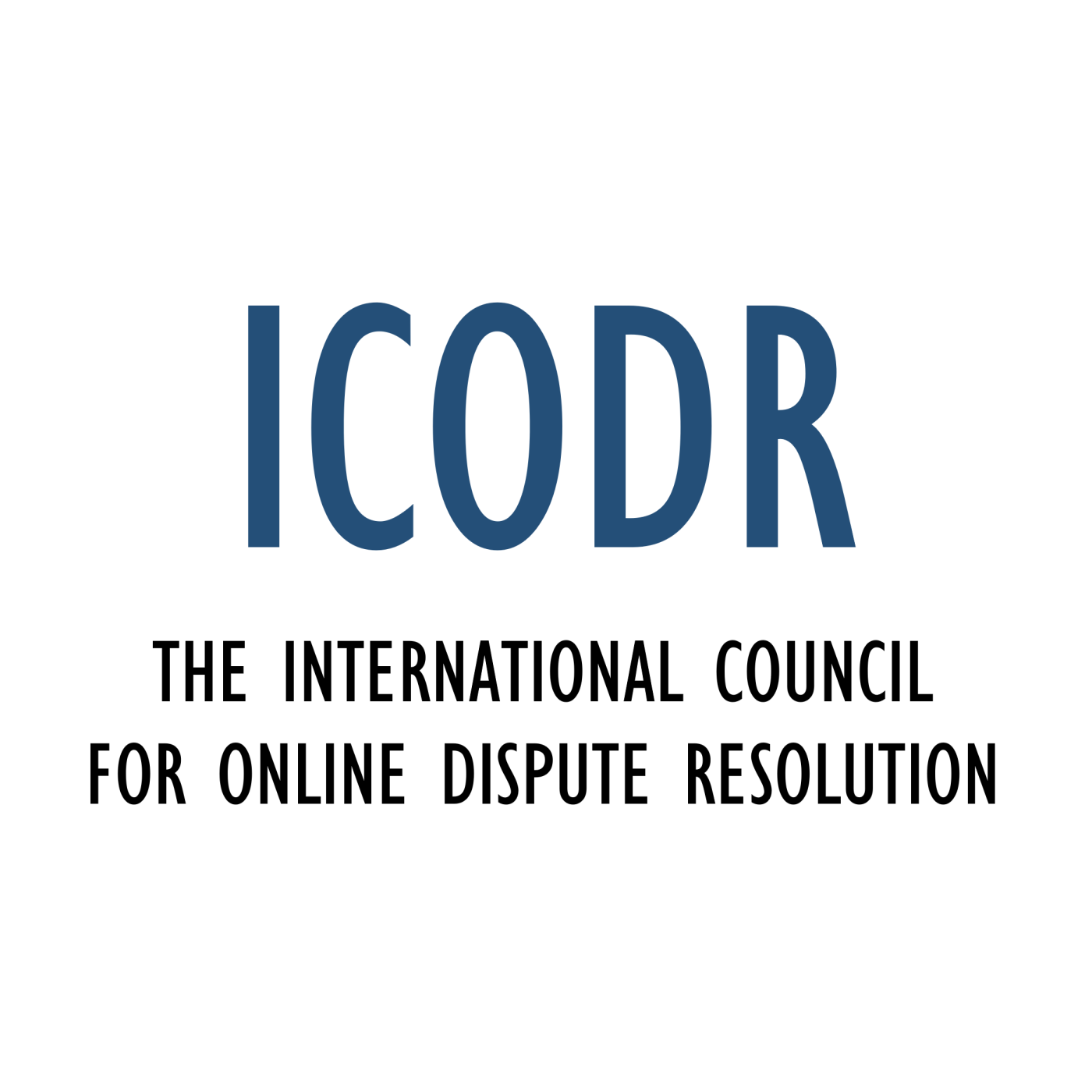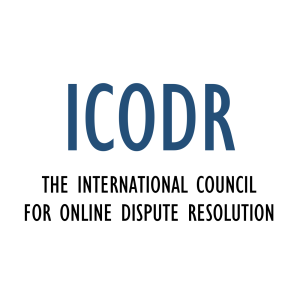The ICODR Podcast

The ICODR Podcast, from the International Council for Online Dispute Resolution (icodr.org), covers the rapidly growing field of online dispute resolution. Hosted by Ian Macduff, the podcast interviews ODR experts from around the world to discuss the latest developments in the field, with an eye to ethics, culture, security, and impartiality.
Episodes
Episodes



Friday Jul 04, 2025
Episode 36: Chris Draper on Accelerating Human Action with ODR
Friday Jul 04, 2025
Friday Jul 04, 2025
In this episode of the ICODR podcast Ian interviews Dr. Chris Draper, Managing Director of Trokt, on the evolution of technology, AI, and ODR.
Chris Draper is based in Des Moines, Iowa. Chris received his Bachelor of Science in Mechanical Engineering from the University of California at Berkeley and his Doctor of Philosophy from the University of Glasgow. He is also a Venture Partner with VU Venture Partners in San Francisco, California. Chris’ ‘mission’ lies in reducing the operational risk of how humans interface with technology systems. To this end, he focuses on the development and delivery of technologies that help equitably resolve and avoid disputes ranging from labor relations to construction arbitration, financial compliance and to special needs education.
Trokt is a platform designed to optimise the use of digital technologies - to ‘reduce the clutter’ - in managing workflow, negotiations, and the avoidance of digital fraud.
Chris is also Co-Chair of the American Bar Association’s Section of Dispute Resolution Technology Committee.
more on Chris: https://odr.info/chris-draper/
more on Trokt: https://www.trokt.com/



Wednesday Feb 05, 2025
Episode 35: Nicolás Lozada on Financial Empowerment and ODR in Colombia
Wednesday Feb 05, 2025
Wednesday Feb 05, 2025
In this episode of the ICODR podcast Ian interviews REDEK CEO Nicolás Lozada on his evolving work in financial inclusion, empowerment, and ODR in Colombia.
Nicolás Lozada is a lawyer with a strong academic and professional background in LegalTech, Online Dispute Resolution (ODR), and international law. He is the founder of CREO, a financial inclusion platform that empowers women in informal transactions, and REDEK [https://www.redek.co/], Colombia's first startup focused on Digital Justice and Online Dispute Resolution. His approach combines technological innovation and law to transform justice systems and resolve disputes more efficiently and accessibly.
He is a member of the National Center for Technology and Dispute Resolution (NCTDR) and an arbitrator on the APEC e-BRAM online dispute resolution panel. Colombia appointed him to the United Nations Commission on International Trade Law (UNCITRAL) Working Group III, where he contributed to key initiatives in online dispute resolution and e-commerce.
With master's degrees in Law and the Global Economy from New York University and in International and Comparative Law from the National University of Singapore, Nicolás is a recognised expert and advocate for ODR and LegalTech tools. I see too - on the Singapore connection - that Redek has been a consultant to the Monetary Authority of Singapore on Online Dispute Resolution (ODR) for crypto assets and consulting on the impact of generative AI on financial derivatives.
He has served as a consultant, lecturer, and professor at universities such as Externado de Colombia, Javeriana, de la Sabana, del Rosario, ICESI, and Santo Tomás, addressing topics related to arbitration, international business, foreign investment, and digital dispute resolution.



Monday Jan 27, 2025
Monday Jan 27, 2025
In this episode of the ICODR podcast Ian interviews ODR pioneer Graham Ross about the 2025 ODR Forum he's hosting in London April 29-30 (more information at odr2025.org).
About Graham
Graham is Founder and President of TheMediationRoom.com. He is a UK lawyer and mediator with over 20 years experience in IT and the law. Graham is the author of legal application software (accounts and time recording) and the founder of LAWTEL, the popular web-based legal information update service.
He co-founded the first ODR service in the UK, WeCanSettle, and designed the blind bidding software at the heart of the system. Graham subsequently founded TheMediationRoom.com, for whom he designed their online mediation platform.
Graham speaks regularly at international conferences on the impact of the law on the Internet and e-commerce and on the application of technology to ADR. Graham was host of the 5th International Conference on Online Dispute Resolution held in Liverpool, UK, in 2007. And one key reason for talking with Graham is that he will again be hosting - or co-hosting - the annual ODR Forum (ODR2025.org), this time in London in April this year.
Graham has been at the heart of ODR developments, not least through his ongoing commitment to the Board of ICODR and their work on standards for ODR.



Thursday Dec 19, 2024
Thursday Dec 19, 2024
In this episode of the ICODR podcast Ian speaks with Lissa Gerking of the Federal Bar Association in Brussels, and Chair in Civil Law, German, European and International Civil Procedure at the Leibniz University Hannover. They discuss how the digital transformation of justice can reduce the focus on the core principle of a fair trial, sidelining several procedurally important aspects of in person hearings. ODR's global adoption is being driven primarily by efficiency, but that efficiency may be achieved at the expense of justice. Fast justice is not always better justice.
Every society is different, with different stakeholders -- and litigants may have different levels of digital literacy in different countries. There may also be issues around the quality internet access available to individuals, challenges around distinguishing safe and unsafe online locations, and accessing safe and secure places to engage in online processes. If we are to effectively design a new justice system that leverages technology, we must remain cognizant of these challenges around access. awareness, and understanding of technology.
More information about Lissa:https://www.linkedin.com/in/lissa-gerking-689061160/?originalSubdomain=de



Tuesday Nov 26, 2024
Tuesday Nov 26, 2024
In this episode of the ICODR podcast Ian speaks with Ayelet Sela, lecturer at the Faculty of Law in Bar Ilan University. Dr. Sela’s scholarship and teaching revolve around dispute system design, law and technology, courts, and empirical legal studies. Her recent academic work focuses on procedural design, procedural justice and access to justice in online courts and tribunals as well as in hybrid (remote) proceedings. She is particularly interested in exploring how the justice system can best serve self-represented individuals in these contexts. In addition, Dr. Sela collaborates with data scientists on the application of machine learning methods to legal data and studies questions related to the use of AI tools in governance mechanisms and judicial contexts.
Previously, Dr. Sela was a senior fellow of the Jean Monett Center on Digital Governance, a founding member of the BIU LawData Lab, and a member of the Bar-Ilan University Data Science Institute. She also clerked for the Honorable Justice Eliezer Rivlin in the Israeli Supreme Court and worked as an auditor for the Israeli Ministry of Justice. Dr. Sela holds a JSD and JSM from Stanford Law School and an LL.B and “Amirim” Honors Program diploma from the Hebrew University in Jerusalem.



Wednesday Nov 20, 2024
Wednesday Nov 20, 2024
In this part two episode of the ICODR podcast Ian speaks with Clare Fowler, Executive Vice President of Mediate.com, on the ethical ramifications of using AI in dispute resolution.
Clare Fowler is Executive Vice-President and Managing Editor at Mediate.com, as well as a professor at the University of Oregon and a practicing workplace mediator. Clare received her Master's of Dispute Resolution from the Straus Institute for Dispute Resolution at the Pepperdine University School of Law and her Doctorate in Organizational Leadership, focused on reducing workplace conflicts, from Pepperdine University School of Education. Clare also coordinated the career development program for The Straus Institute dispute resolution students. In 2023, Clare published Rising Above Office Conflict: The Light-Hearted Guide for the Heavy-Hearted Employee.



Monday Sep 16, 2024
Episode 30: Mediate.com EVP Clare Fowler on AI and the Future of ODR
Monday Sep 16, 2024
Monday Sep 16, 2024
In this episode of the ICODR podcast Ian speaks with Clare Fowler, Executive Vice President of Mediate.com, on the future of AI and ODR, and the new International Bar Association standards for using AI in dispute resolution.
Clare Fowler is Executive Vice-President and Managing Editor at Mediate.com, as well as a professor at the University of Oregon and a practicing workplace mediator. Clare received her Master's of Dispute Resolution from the Straus Institute for Dispute Resolution at the Pepperdine University School of Law and her Doctorate in Organizational Leadership, focused on reducing workplace conflicts, from Pepperdine University School of Education. Clare also coordinated the career development program for The Straus Institute dispute resolution students. In 2023, Clare published Rising Above Office Conflict: The Light-Hearted Guide for the Heavy-Hearted Employee.



Wednesday Jun 26, 2024
Wednesday Jun 26, 2024
In this episode of the ICODR podcast Ian speaks with Zbynek Loebl and Leah Wing about the 2024 ODR Forum, which took place in Prague June 5-6, 2024.
Zbynek is of counsel at PRK Partners in Prague. He specialises in the field of Internet law and legal aspects of ICT and technology projects. With extensive experience in internet law, convergent services, electronic communications, e-commerce, personal data protection, cyber security and intellectual property, he has been a pioneer in the field of ODR for twenty years. Zbynek is a fellow of The National Center for Technology and Dispute Resolution (NCTDR). He has also participated in a number of international projects related to cross-border online dispute resolution. He is an author of a book Designing Online Courts (The Future Of Justice Is Open To All), Kluwer Law International, 2019.
Leah is a Professor at the University of Massachusetts-Amherst, as well as the Director of the National Center for Technology and Dispute Resolution (NCTDR). Leah heads the Ethical Principles for Online Dispute Resolution initiative of NCTDR and serves on the ABA Online Dispute Resolution (ODR) Standards Taskforce and the ABA Technology Committee. Leah has taught dispute resolution since 1993 and served as a researcher on early experiments in online dispute resolution. Leah is on the editorial boards of the International Journal of Online Dispute Resolution and of Conflict Resolution Quarterly, served two terms on the Association of Conflict Resolution Board of Directors, and is on the advisory board of ODREurope. Leah is also the founding director of the Social Justice Mediation Institute.

About ICODR
ICODR is an international nonprofit, incorporated in the United States, that drives the development, convergence, and adoption of open standards for the global effort to resolve disputes and conflicts using information and communications technology.
ICODR promotes worldwide standards for all forms of technology-assisted dispute resolution, including diagnosis, negotiation, mediation, arbitration and courts. ICODR’s open standards offer the potential to lower cost, stimulate innovation, protect consumers and citizens, and protect the right of free access to justice.



